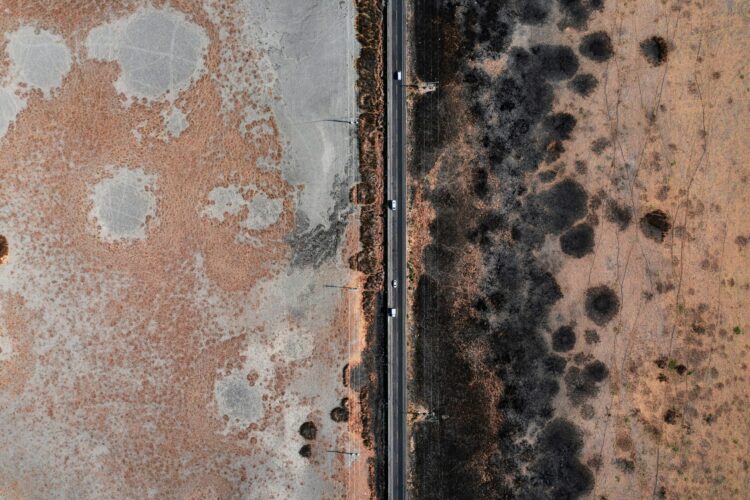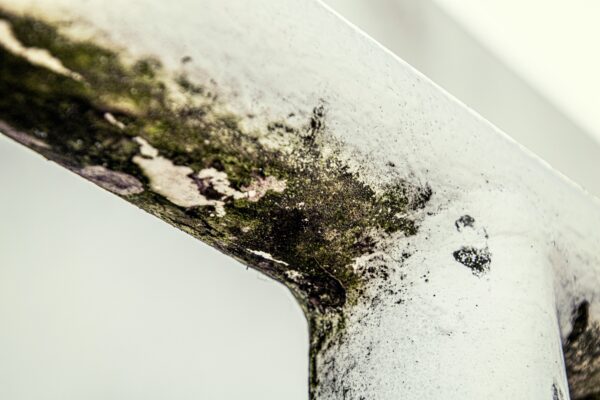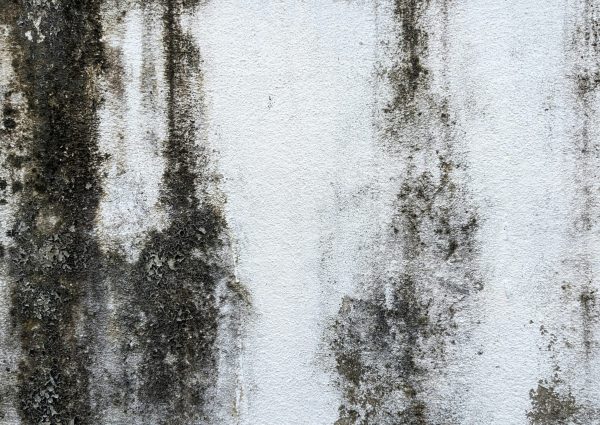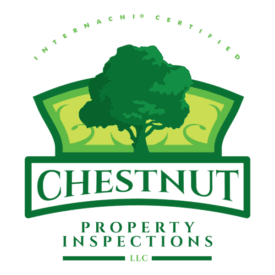Mold Testing & Air Quality Inspections
have mold? don't panic- call us!
Concerns about Mold
It can be scary when you think you’ve found mold in your home, and might raise many questions: Is this dangerous? Can I clean it or do I have to hire a mitigation company? Is it toxic? Are my kids safe?
Mold is found everywhere, and grows when moisture is elevated. Many types of mold found in homes can cause mild to moderate allergic reactions in peoples’ breathing or skin conditions; while some can have more severe reactions.
The good news is that only a few species of mold are actually dangerously toxic. We’ve all heard about ‘toxic black mold’, but did you know that not all black mold is toxic? Genuinely toxic black mold (Stachybotrys chartarum) is rarely found indoors, though of course when it is, it can be a serious health risk.
Mold can appear in many colors aside from black, such as green, gray, red, and pink. Most mildew (a subspecies of mold) is black, pink, or white. It can be impossible to tell what type of mold you see simply by looking at it, making mold testing a necessity.

What is mold, and Why is it a problem?

Mold is a type of fungi that grows on organic materials and produces spores that can affect health or cause damage to buildings. It’s found everywhere, and grows quickly in areas where there is excessive moisture. When spores land on a moist surface, they start to grow and release chemicals that digest or destroy underlying materials.
While mold plays an important role in the environment, helping to break down organic matter such as fallen leaves and dead trees, it can also grow in homes and can damage building materials, requiring repairs or replacement of components. It can grow in the ducts of HVAC systems, behind walls, or in attics or basements.
Aside from the damage it can cause to buildings, many people are very sensitive, and even allergic, to common allergenic molds that are not considered toxic. The most common health complaint that we receive is that people are having breathing problems, or sometimes tell us that they aren’t feeling as well as they used to, and suspect that mold may play a part in this.
What We Do
We’re certified and trained specifically in mold testing and indoor air quality inspections, and can do air and surface sampling to check for the presence of mold.
While we do simple mold testing, the best, most comprehensive, service for mold is an Indoor Air Quality (IAQ) inspection. This is a combination of a building inspection looking for potential or active sources of moisture, and three mold samples. We’ll do the building inspection using tools like an infrared camera and moisture meter to thoroughly investigate suspected areas of moisture.
During the IAQ inspection, one air sample is taken outdoors as a control sample, to identify the mold types in the environment. A second air sample is taken on the lowest level of the home (usually the basement), where moisture is most prevalent. A third sample can be either an air sample (taken in a bedroom or other room if health symptoms are occurring), or a surface sample if suspected mold is observed. More samples can be collected as requested for an additional fee. An IAQ inspection includes a full written report on the findings of the inspection, as well as recommendations that are specific to the lab results and general recommendations for preventing mold growth.
The lab we use for analysis is Priority Lab in Ft. Lauderdale, FL. They are fully accredited with the National Institute of Standards and Technology, and the American Industrial Hygiene Association. We ship the samples to the lab overnight and we typically have the results the next business day.
Our lab reports are not confusing. One of the reasons we chose to work with Priority Lab is that their reports are readable and understandable. They clearly identify mold species and their specific spore counts, and whether or not those levels are concerning. All our mold testing services include a personal phone consultation to walk you through the results and outline next steps – whether that means remediation, cleaning, building maintenance or repairs, or further consultation with health care experts.
Mold remediation companies are not regulated in PA. Sometimes a remediation company will do the final testing after remediation is finished, which is a conflict of interest. To avoid a conflict of interest on our end we don’t offer remediation services, but we are sometimes hired to do the final testing after a remediation has been completed. We’re here to help whenever mold testing services are needed!
What we offer
We offer three levels of mold testing and inspections
healthy home Bundle
This package includes mold inspection and testing, along with a radon test. We will do an Indoor Air Quality (IAQ) inspection (see right), which includes a building inspection, and air or surface mold samples. We'll also test your home for radon, a naturally-occurring radioactive gas that is the second leading cause of lung cancer. You can learn more about radon by clicking here.
IAQ Inspection
In an Indoor Air Quality inspection, we'll inspect the home for areas of excessive moisture or other conditions that could cause mold growth. We'll take three mold samples: an outdoor air sample as a control, an indoor air sample, and a third air sample or a surface sample depending on what is discovered in the inspection. Additional samples can be taken at the customer's request.
limited mold testing
This service is limited to mold sampling. We will take two mold air or surface samples, one outside air sample as a control and one inside sample, or two surface samples. Additional samples can be taken at the customer's request. This service does not include inspecting the home for conditions that could cause mold growth that is suspected or observed.
Frequently Asked Questions
Mold has a distinctive appearance that can be black or almost any other color. It also has a distinctive smell – it smells moist and earthy, almost like mud. You’ll often smell mold before you see it.
You may also experience health symptoms such as wheezing or sneezing, congestion, trouble sleeping, or watery eyes. If you notice that these symptoms lessen or go away when you are away from home, you may have an allergenic mold problem in your home.
Mold and fungal spores are everywhere, and their primary job is to aid in the decomposition of matter. Many types of molds are allergenic in nature, but some create a tiny secondary metabolite, called a mycotoxin, and are considered toxic. Only certain types of spores can create mycotoxins in their defense to survive. For this reason, we test the spore type.
Since the EPA does not define exposure limits, it is common industry practice to compare outside species to inside species of mold or fungi. The indoor measurements should be lower than, but similar to, those of outdoor air.
We test for mold in two ways: air sampling and surface sampling. Air sampling is done with a calibrated mold air pump that pulls the air from the room through a cassette and onto a slide.
Surface samples are collected with a sealed swab or a tape sample, which is a slide with a sticky surface that can be pressed against any suspected mold.
These samples are sent to our partner lab for microscopic analysis to determine what species of mold are present, and we usually have the results the next business day.
No, we cannot do mold remediation. We are not trained or qualified in this, and it certainly would be a conflict of interest. We recommend that you search for a mold remediation company in your area that has excellent reviews.
If you choose to hire a contractor (or other professional service provider) to do the cleanup, make sure the contractor has experience remediating mold. Check the company’s reviews and references, and make sure that the contractor follows the guidelines of the American Conference of Governmental Industrial Hygienists (ACGIH), Institute of Inspection, Cleaning and Restoration Certification (IICRC), or other guidelines from professional or government organizations.
Molds include all species of microscopic fungi that grow in the form of multicellular filaments, called hyphae. Mildew refers to certain kinds of mold or fungus, and usually has a flat growth habit.
Molds can thrive on any organic matter, including clothing, leather, paper, and on the ceilings, walls, and floors of homes with moisture management problems. Mildew often lives on shower walls, windowsills, and other places where moisture levels are high. There are many species of molds. In unaired places, such as basements, they can produce a strong musty odor.
Mold grows where there is elevated moisture or humidity. Basements and bathrooms are the most common place to find mold, although it can be almost anywhere in a house.
The best way to prevent mold is to control moisture in your home. That may mean installing a dehumidifier in a basement or other room, or installing a more powerful bathroom fan. Moisture can also come from roof or plumbing leaks, roof drainage entering the basement, or other building issues that elevate moisture inside the home.
We can inspect your home for unseen areas of moisture intrusion, and give you guidance on what to do about the problem.

Our Service Area
We serve Allentown, Carlisle, Harrisburg, Lancaster, Lebanon, Pottsville, Reading, York, and their surrounding areas in Central Pennsylvania. Contact us with questions or service outside these areas.
Additional fees apply to properties over an hour away, over 100 years old, or over 2,000 square feet.


